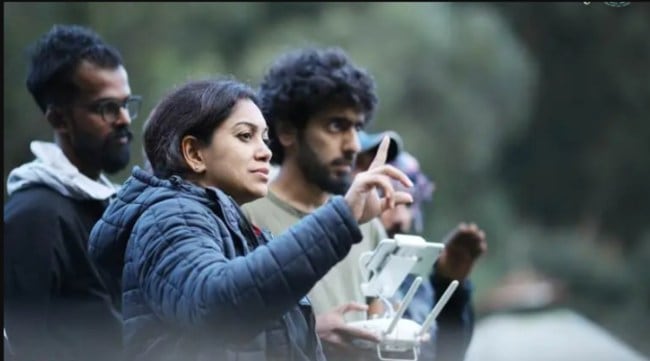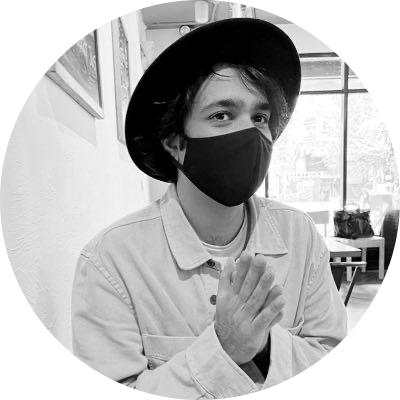Opinion What director Anjali Menon doesn’t understand about film criticism
Critics need to be educated in the history and aesthetics of the medium. They need not be filmmakers.
 Director Anjali Menon basically turned into a Twitter troll in a recent Film Companion South interview when she said something to this effect.
Director Anjali Menon basically turned into a Twitter troll in a recent Film Companion South interview when she said something to this effect. There is one kind of attack, more than any other, that every critic worth their salt would have tolerated at some point in their career: “If you’re so clever, why don’t you make your own film?” Often, these comments come from faceless social media accounts, but on occasion, they’re made by disgruntled filmmakers themselves. Director Anjali Menon basically turned into a Twitter troll in a recent Film Companion South interview when she said something to this effect.
She cited the example of the critic Udaya Tara Nayar, whom she said was encouraged by her first editor to visit film sets to better understand how movies are made. Putting aside the fact that this kind of access would be unimaginable these days, it’s always unadvisable for critics to rub shoulders with the people whose work they’re supposed to write honestly about. It’s also worth noting that journalists and critics don’t need to observe filmmakers up close anymore; they have different tools at their disposal now. Provided that the goal is to learn the basics of moviemaking and not “network” your way into industry events. Aspiring critics can read reams of material on film theory if they want to, or more entertainingly, watch old videos of Roger Ebert and Gene Siskel sparring on television about Home Alone 3.
But more to the point, it’s easy to offer a beat-by-beat rebuttal to Menon’s statement, but it’s more interesting to take what she said and use it as an excuse to talk about the professional in general. According to her, she can’t help but crack up every time she hears someone say that “there was a lag in the movie”. She countered, “One should at least know what editing is as a process before passing such comments.”
Her words are laced with condescension, and the best thing that any critic can do in this situation is to pretend like they aren’t directed at them. One wouldn’t make similar statements about a business journalist. And how many tech reviewers are told to first get a degree in engineering before writing about some air purifier? None, probably. Plus, the entire argument is based on the assumption that everybody has the same access to “education”.
There is, of course, a kernel of truth in what Menon said. But one wouldn’t want to give her credit for observations that aren’t her own, just as one wouldn’t want to put words in her mouth. It’s true that many critics need to understand the basics of filmmaking; in fact, this should be made a requirement for the job. But just as importantly, they need to be educated in the history of the medium. They need to be exposed to cinema from all over the world, and not just the mainstream nonsense produced in their own backyards. Good critics need to be excellent writers, and above all, empathetic human beings. Knowing the difference between a split diopter shot and a dolly zoom could be valuable, but it won’t help a cynical critic identify and appreciate the moments of wonder in a mediocre movie.
It would do nobody any favour, least of all filmmakers themselves, if a technically qualified critic is able to appreciate the craft of a particular film, but is unable to communicate why. A couple of personal pet peeves include confusing beautiful cinematography with good cinematography, or suggesting that the editing alone is to blame for a film’s pace. While both these observations could technically be true, it’s worth noting that cinematography shouldn’t be limited to how wonderful a film looks; nor should editing be associated with pacing issues. Ultimately, both editing and cinematography are storytelling tools; a frame could be visually ugly, but if it conveys what the director wants it to convey, that’s good cinematography. Similarly, an action scene could be disorientating because of quick cuts, but if the filmmaker wants to communicate a sense of tension and excitement, then there are few better techniques that an editor could use.
Of course, there’s a rich history of critics transitioning into filmmaking. The most famous examples are probably François Truffaut and Park Chan-wook, but we have several in our own country. In some circles, especially in India — and this is probably also why Menon subconsciously said what she did — being a critic is seen as a stepping stone to a career in filmmaking.
Forget critics, I would argue that even filmmakers needn’t know the intricacies of the technical side of things. For instance, while David Fincher would probably notice if his lens is off by 2 mm, Kevin Smith has admitted that he has no idea how lenses even work. That’s his DP’s job. A director’s duty, first and foremost, is to tell their story. A critic’s job, ideally, isn’t merely to declare something is good or bad, but to explain why and how they’ve come to that conclusion. There are bad critics, just as there are bad filmmakers. In both fields, only the good ones should be taken seriously.





